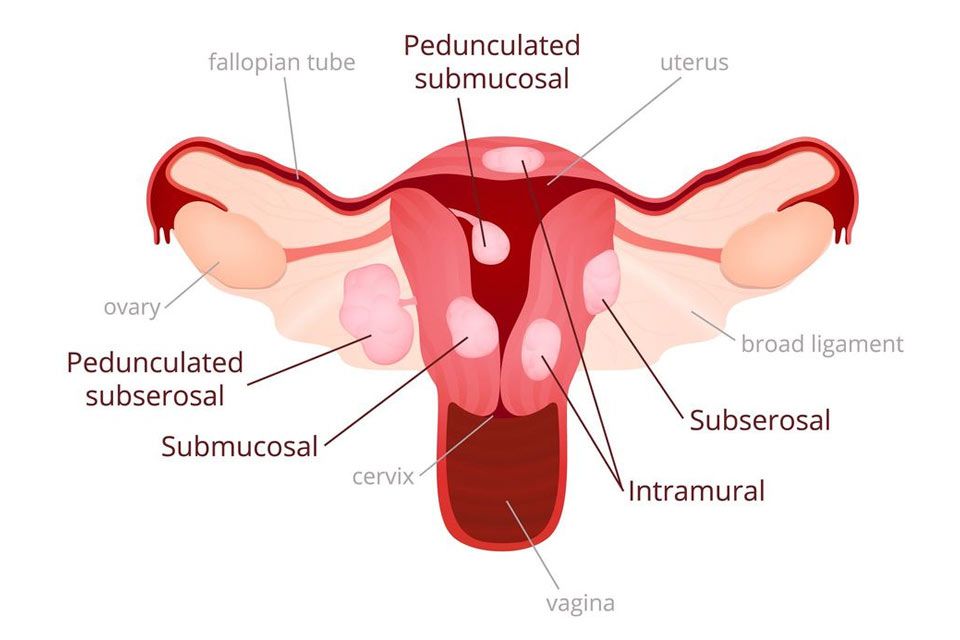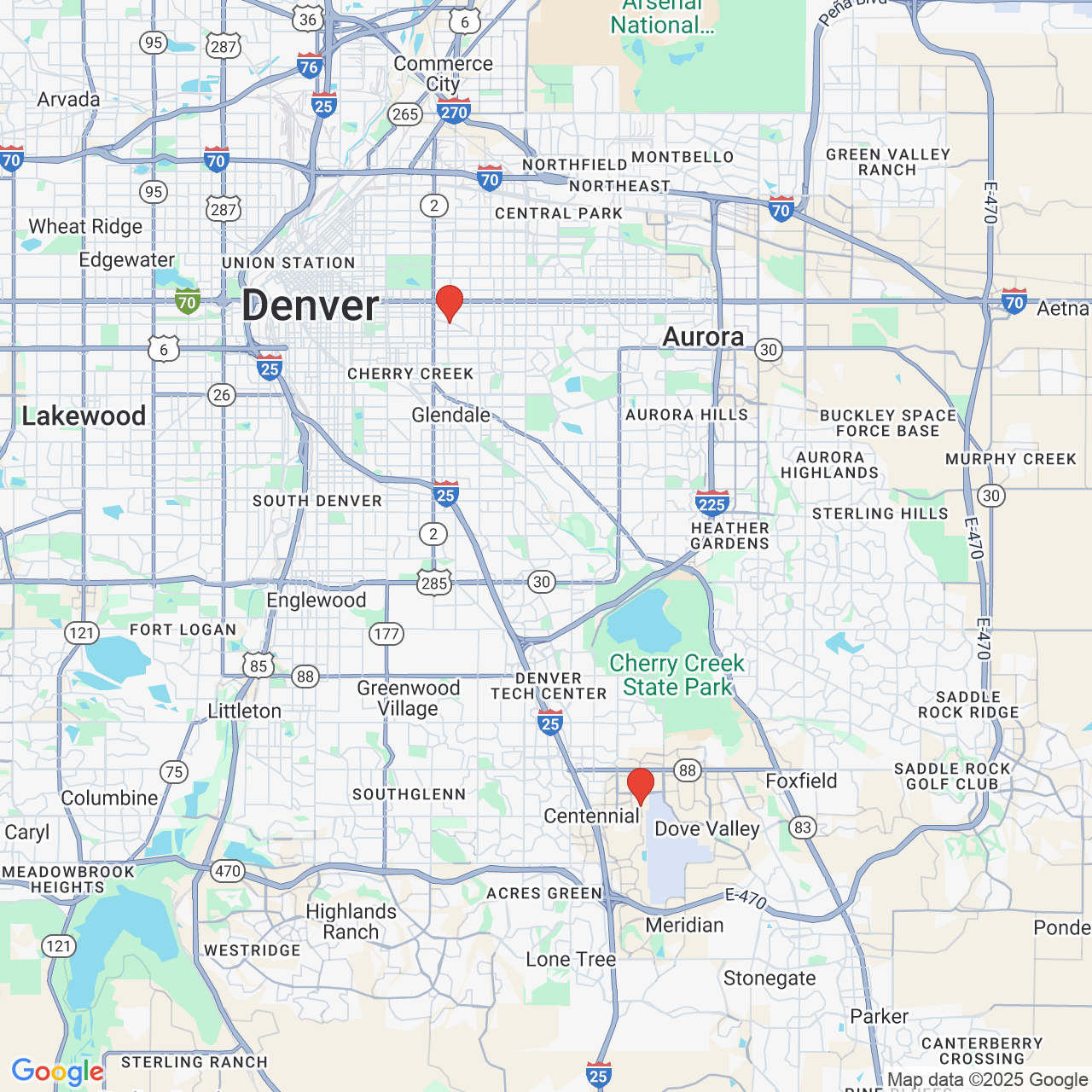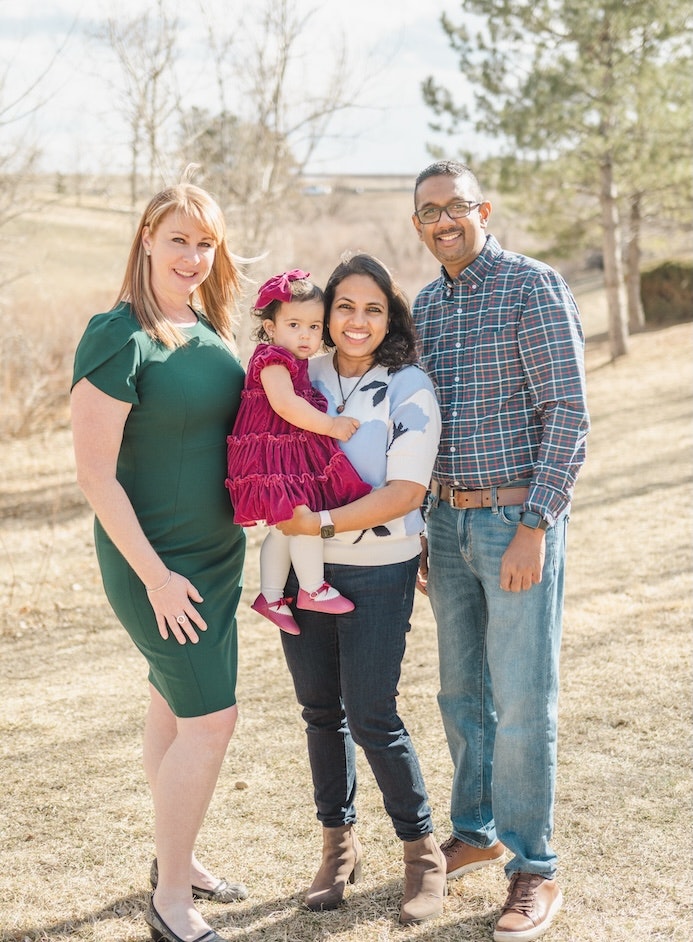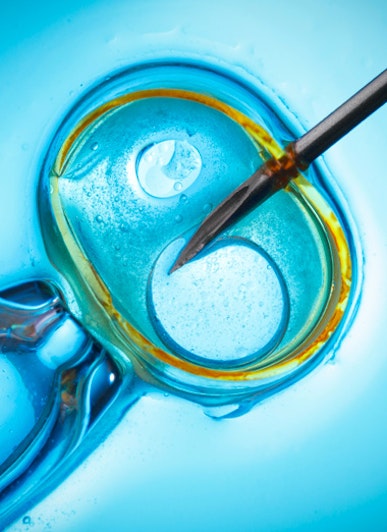Treating Uterine Fibroids Can Alleviate Symptoms and Preserve Your Fertility
Uterine fibroids are muscular tumors that grow in or on the walls of the uterus. These growths can cause a range of symptoms, such as heavy menstrual bleeding, pain, and infertility. In the majority of cases, fibroids are benign and do not pose a significant threat to your health. For some women, fibroids do not cause any symptoms at all. However, if you are struggling with symptomatic fibroids, the team at Denver Fertility Albrecht Women’s Care can provide treatment to alleviate their effects and restore your fertility. At our Lone Tree office in Englewood, CO, Dr. Bruce Albrecht and Dr. Dana Ambler provide medical management as well as minimally invasive surgery to remove fibroids.

What Are Fibroids?
Fibroids are benign muscular tumors that grow in or on the uterus. Also known as leiomyomas or myomas, uterine fibroids can vary significantly in size, shape, and location. Fibroids can present as a single tumor or multiple growths. They can grow inside the uterine cavity, on the outer wall, or the outside of the uterus where they are attached by a stem-like structure.
Risk Factors for Uterine Fibroids
There are certain factors that can increase your likelihood of developing fibroids, including:
- Age: While fibroids can occur at any age, they are more common in women between 30 and 50 years old.
- Family history: If you have a family member with fibroids, this can increase your risk.
- Ethnic origin: Fibroids are more common in African American women than Caucasian women.
- Obesity: Being overweight places you at a higher risk for fibroids.
- Diet: Excessive consumption of red meat and ham is linked to a higher risk of fibroids.
Patients with risk factors for fibroids should be especially diligent about attending annual pelvic exams. Early intervention can prevent fibroids from growing and becoming more difficult to manage.
Fibroid Symptoms
In some women, fibroids can develop without causing any symptoms at all. Often, in these cases, no treatment is needed and Dr. Albrecht or Dr. Ambler can simply monitor your condition. However, many women experience symptoms, such as:
- Changes in menstruation
- Heavy menstrual bleeding or painful cramps
- Bleeding between periods
- Pain in the abdomen or lower back
- Pressure or pain during sex
- Difficulty urinating or frequent urination
- Constipation or difficult bowel movements
- Enlargement of the lower abdomen
- Complications during pregnancy and labor, such as pain or preterm labor
- Reproductive issues, such as infertility
When fibroids cause issues with fertility, many women are able to successfully conceive after undergoing treatment.
The Diagnostic Process
Since several symptoms of fibroids are associated with other conditions, your doctor will perform a comprehensive evaluation to rule out other possibilities. During your consultation, we will discuss your full familial, medical, and gynecological history. Then, Dr. Albrecht or Dr. Ambler can perform an ultrasound to determine whether fibroids are present. In some cases, your doctor will also recommend a 3-D sonohysterogram for a better view of your uterine cavity. This test can provide more precise locations of fibroids and allow the doctor to more effectively plan your treatment regimen. Lab evaluations may also be ordered to determine whether you suffer from anemia, a condition which results in low levels of red blood cells.
Personalized Treatment
Your treatment plan will largely depend on your goals. If you simply want to control your symptoms, your doctor may recommend medical management. This often includes pain medication, an iron supplement to prevent anemia, and hormonal treatment with birth control or other medications. However, this type of intervention will only control your symptoms as long as you continue taking the medications.
Fibroid surgery is a delicate procedure. Drs. Albrecht and Ambler have over 45 years of combined experience and will use precise, minimally invasive techniques to preserve your fertility.
The most effective treatment for uterine fibroids is surgery, especially if you want to become pregnant. Your doctor can perform a myomectomy to remove fibroids with minimal effect on surrounding, healthy tissue. Fibroid surgery is a delicate procedure. However, Drs. Albrecht and Ambler have over 45 years of combined experience and will work carefully to remove the growths while preserving your fertility.
Find Relief
If you are struggling with fibroids, our team can help alleviate your symptoms while preserving your future fertility. Dr. Albrecht and Dr. Ambler are both board-certified in reproductive endocrinology, obstetrics, and gynecology, which offers a unique perspective on fertility issues and other women’s health concerns. For more information about our fibroid treatment or the fertility services we offer, call (720) 420-1570 or contact our practice online today.








